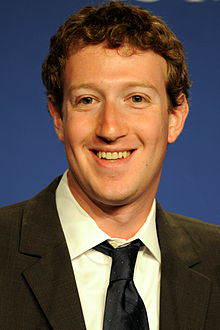The Growing Impact of Gen-Y Entrepreneurs
The business world has been watching this emerging generation with trepidation, and a lot of us haven’t been sure who would be the winners, and who would be the losers. Can they survive as entrepreneurs, and do they have the passion it takes to run a startup and attract investors?
My own perspective is that the recession has been good for Gen-Y (Millennials), because it has forced them to face reality, often for the first time in their life. In the last couple of years, even college grads with advanced degrees don’t have job opportunities waiting for them. But I’m happy to report that I see more and more of them impressively stepping up to the entrepreneurial plate.
It now reminds me of previous generations, per the qualms raised about Gen-X back about 20 years ago, and about the Baby Boomers some 20 years before that. Yet now Gen-X’ers are seen as the major facilitators of change, and Boomers are the angels and business advisors for hot new startups.
We should look ahead to capitalize on the evidence of the positive attributes of Gen-Y from a business perspective, including the following:
- Confidence. Raised by parents believing in the importance of self-esteem, they characteristically consider themselves ready to overcome challenges and leap tall buildings.
- Goal and achievement-oriented. Many Gen-Y’ers approach the business world with solid personal goals. They expect to create something that is technically challenging, creative, fun, and financially rewarding.
- Multi-cultural. They expect to succeed in a workplace that is fair to all, where diversity is the norm—and they’ll use their collective power if they feel someone is treated unfairly. Diversity is a key to innovation, and big new business opportunities.
- Civic minded. They were taught to think in terms of the greater good. They have a high rate of volunteerism. They expect companies to contribute to their communities—and to operate in ways that create a sustainable environment.
These attributes have already driven several well-known Gen-Y startups, like Facebook and Groupon. Yet it’s too early to totally forget the potential shortcomings and idiosyncrasies of Gen-Y. According to Winograd and Hais, there are still some of worrisome attributes relative to the role of entrepreneur:
- Need to be scheduled. Gen-Y’ers were tightly scheduled as children and used to a full schedule of structured activity. Many still struggle with handling free time and time management in general. A startup is the most unstructured entity I know.
- Minimal “street smarts.” They grew up in a time of increasing safety and protection (car baby seats, no failing grades, no walking to school). They were rarely left unsupervised. They may have good academic credentials, but less business sense.
- Consensus driven. Gen-Y members have been reared in a way that makes it difficult for them to conduct business negotiations in an entrepreneurial manner. Rather than seeking to come out on top in zero-sum games, Gen-Y strives for consensus.
My challenge to Gen-Y, and to the rest of us, is to capitalize on the positive attributes and continue to work on overcoming any remaining negatives. I’m still convinced that “real change only happens when the pain level gets high enough.” The pain level has been high, but the business climate is improving, so let’s not slip backward.
Gen-Y is now experiencing their wake-up call, just like previous generations did with Vietnam and the 1980 recession. From the quality of interactions I’ve had recently mentoring a number of Gen-Y members, I’m happy to report that many are emerging as the new entrepreneurs of the digital age. I’m sure you agree that we need them.

